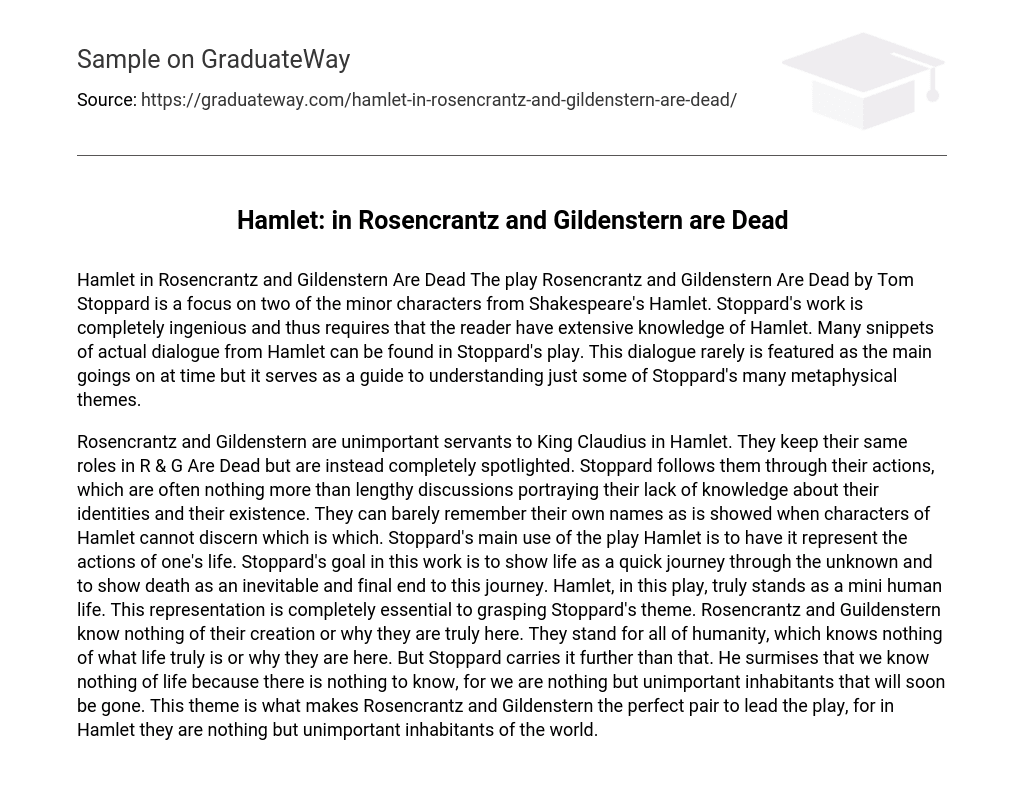Hamlet in Rosencrantz and Gildenstern Are Dead The play Rosencrantz and Gildenstern Are Dead by Tom Stoppard is a focus on two of the minor characters from Shakespeare’s Hamlet. Stoppard’s work is completely ingenious and thus requires that the reader have extensive knowledge of Hamlet. Many snippets of actual dialogue from Hamlet can be found in Stoppard’s play. This dialogue rarely is featured as the main goings on at time but it serves as a guide to understanding just some of Stoppard’s many metaphysical themes.
Rosencrantz and Gildenstern are unimportant servants to King Claudius in Hamlet. They keep their same roles in R & G Are Dead but are instead completely spotlighted. Stoppard follows them through their actions, which are often nothing more than lengthy discussions portraying their lack of knowledge about their identities and their existence. They can barely remember their own names as is showed when characters of Hamlet cannot discern which is which. Stoppard’s main use of the play Hamlet is to have it represent the actions of one’s life. Stoppard’s goal in this work is to show life as a quick journey through the unknown and to show death as an inevitable and final end to this journey. Hamlet, in this play, truly stands as a mini human life. This representation is completely essential to grasping Stoppard’s theme. Rosencrantz and Guildenstern know nothing of their creation or why they are truly here. They stand for all of humanity, which knows nothing of what life truly is or why they are here. But Stoppard carries it further than that. He surmises that we know nothing of life because there is nothing to know, for we are nothing but unimportant inhabitants that will soon be gone. This theme is what makes Rosencrantz and Gildenstern the perfect pair to lead the play, for in Hamlet they are nothing but unimportant inhabitants of the world.





